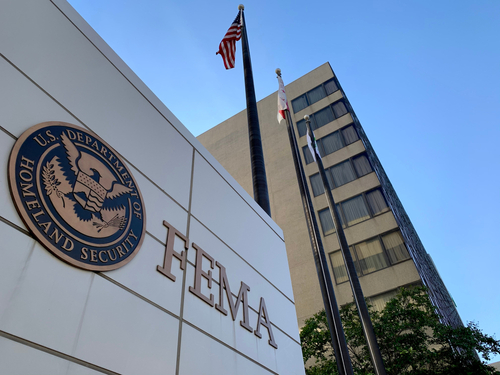
On Wednesday, U.S. Reps. Dan Goldman (D-NY) and Bennie Thompson (D-MS) introduced legislation designed to improve communication from FEMA to states and localities receiving counter-terrorism grants.
The bill, the “Enhancing Stakeholder Support and Outreach for Preparedness Grants Act,” would require the FEMA to provide outreach, education, technical assistance and support to grantees of the State Homeland Security Program (SHSP) and the Urban Area Security Initiative (UASI), programs developed in response to 9/11 that would help localities prepare for another terrorist attack.
“Although Congress allocates billions of dollars every year for local organizations fighting domestic terrorism, confusing grant requirements can keep these critical funds beyond the reach of the stakeholders who need them most,” Goldman said. “It’s critical that we streamline communication between the FEMA Administrator and the grantees, ensuring states and cities are properly educated on the myriad of requirements, program changes, and eligibility guidelines that determine federal funding. The first responders funded by these grants do the hard work of combating everything from election interference to domestic extremism and more.”
The legislation follows a Government Accountability Office (GAO) report detailing insufficient communication, documentation, delayed notification and a lack of transparency from FEMA in regard to decision making for grants. The Congressmen said that as National Priority Area (NPA) requirements for grants have changed from year to year, previous year’s grantees have found themselves ineligible for grants with little time to correct their applications.
According to FEMA, between 2020 and 2022, the agency placed 280 projects within the program on hold, nearly one in every 20. Officials with FEMA said 195 holds were placed on projects that were deemed ineffective during their review, while the remaining 85 holds were placed when the project did not meet minimum spending requirements. FEMA program data showed that ineffective project holds included insufficient project detail, unallowable project type, and non-conformance with a particular National Priority Area – all problems that could have been avoided if FEMA had communicated better with grantees, officials said.
The legislation would require FEMA administrators to provide ongoing outreach to stakeholders; to use annual surveys and other feedback mechanisms to gather input from stakeholders; to require the GAO to submit a report on FEMA’s outreach effectiveness within two years; and to require the FEMA administration to submit a report to Congress on stakeholder outreach within three years of enactment.




